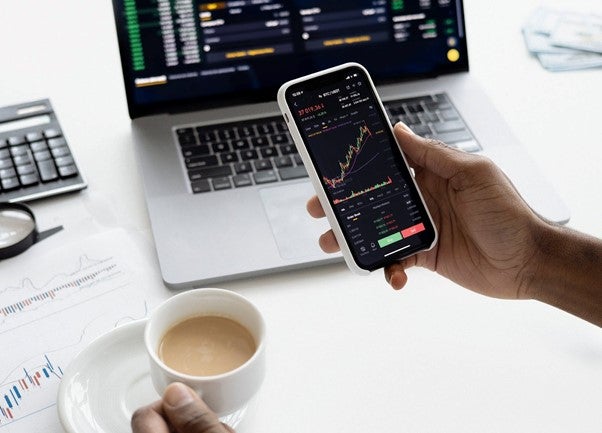
Currency trading has never been more fun and more accessible than it is today. Online investment might be risky of course, but with having the proper platform by your side you may be able to earn more, more easily.
Nowadays, unlike previously when everyone needed a broker to trade currencies, trading platforms enable you to do it on your own. In addition to that, trading platforms allow you to become a better trader. But, you can only benefit from a trading platform if you pick a good one.
What Is a Trading Platform?
A trading platform is basically software used for trading. That means opening, closing, and managing market positioning via a financial mediator like an online broker. Online trading platforms are often offered by brokers for free or at a rate of discount in return for holding a funded account or making a certain number of monthly trades. A good trading platform offers a set of powerful features and low fees.
Anyway, it’s not simple to pick a good trading platform. It requires plenty of time and homework. So, keep reading our comprehensive guide to learn more about online trading platforms.
Understanding Trading Platforms
A trading platform is a web-based marketplace that offers users infinite functionalities to place trades, browse registers of financial instruments, and track accounts via financial institutions beyond the bank dealer collective.
Most of the time, trading platforms are fitted with a mix of extra features, like real-time quotes, premium research information, charting tools, and historical option prices. These things ease the real-time availability of trading information and guarantee consistent and stable negotiation between traders. They simply allow traders to better calculate risk, value assets and recognize trends.
Furthermore, trading platforms are usually tailored to fit the specific needs of certain markets, like commodity futures markets, options, currencies, and stocks. By providing customized features (per each market structure), trading platforms provide a better decision-making process for executing and managing trades.
Trading Platforms Types
Trading platforms are classified into two types: proprietary trading platforms and commercial trading platforms. Large brokerage firms use proprietary trading platforms to replicate the trading style and requirements of electronic brokerage models.
On the contrary, commercial trading platforms are intended for day traders and retail investors. Commercial trading platforms are simple to use and come packaged with useful features like charts and news feeds. They expedite research and provide more insightful information to traders and investors.
Active trading needs numerous trading tools and techniques helpful for recognizing trends. That’s why choosing the best trading platform requires practical experience in active trading.
How to Pick a Trading Platform
When thinking about choosing a trading platform, an investor needs to consider both the basic features and the necessary fees. That’s important because different types of traders require different features for making decisions about their trades.
For example, features like level 2 quotes and market depth charts are crucial for day traders and short-term traders. Contrarily, tools particularly tailored to visualize options strategies are beneficial for options traders.
From a fees point of view as picking criteria, usually, traders favor low-priced trading platforms. Even though lower fees are mostly preferable, there are other factors of the offering to consider. For example, a trading platform with a lower price, but that only has a few features and limited analysis, might not be beneficial.
Tools and best option trading alert services play a crucial role in options trading as they can help traders make informed decisions and manage their risk effectively. Here are some reasons why:
- Analysis: Options trading requires a lot of analysis and research. Tools such as option calculators, volatility scanners, and technical analysis charts can help traders analyze market data, identify trends, and make informed decisions.
- Risk Management: Risk management is an essential part of options trading. Tools such as option chains and position trackers can help traders manage their risk by providing real-time data on their positions and their exposure to market volatility.
- Efficiency: Options trading can be time-consuming, but using tools and alert services can help traders save time and increase their efficiency. Automated trading systems and alert services can help traders stay on top of market movements and execute trades quickly and efficiently.
- Education: Tools and alert services can also help traders learn about options trading and stay up-to-date with market trends. Many platforms offer educational resources, webinars, and market analysis tools to help traders improve their skills and knowledge.
- Access: Finally, using tools and alert services can help traders access new markets and trading opportunities. Many platforms offer options trading tools and services that are not available to individual traders, providing traders with access to a wider range of markets and trading strategies.
Tools and alert services are essential for options traders to make informed decisions, manage risk effectively, save time, learn about the market, and access new trading opportunities.
Additional Requirements for Trading Platforms
Some trading platforms are only available if specific brokers are involved, and others are skeptical of certain mediators. That means that a broker or a mediator’s reputation is an element to be considered before choosing a specific trading platform.
At other times, trading platforms might require traders to meet specific qualification requirements before allowing traders to use them. A good example is the $25,000 minimum equity level that day trading platforms require traders to have available in their accounts. Additionally, options trading platforms may require traders to use their platforms with the consent to trade various options classes.
Trading Platform Is the Better Option Nowadays
With trading platforms, traders are able to keep funded accounts and carry out limited trades. Plus, investors keep funded accounts and can carry out securities trades on different markets. The perfect trading platform includes complex architecture databases which improve security, information transparency and offers secondary market liquidity.
The web-based environment enables traders to interact adequately, implement proper search criteria, and electronically bargain with offers. All that is based on transaction parameters and other terms and conditions by constantly meeting the needs of both parties.
Final Words
If you are looking to choose your first trading platform, but don’t know where to begin with, just follow our comprehensive guide. It will help you to choose the right platform for your trading activities.
3822 Views















